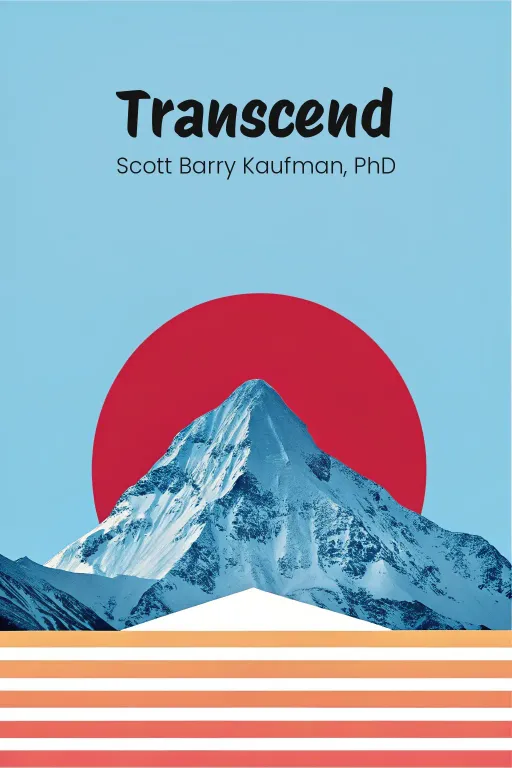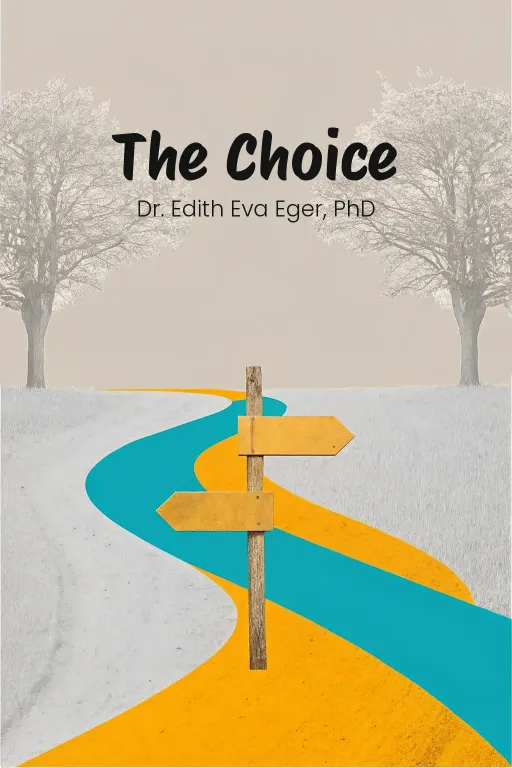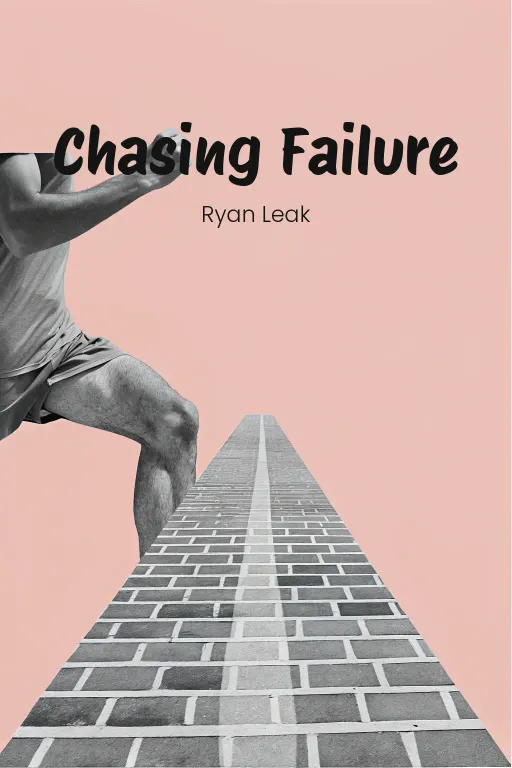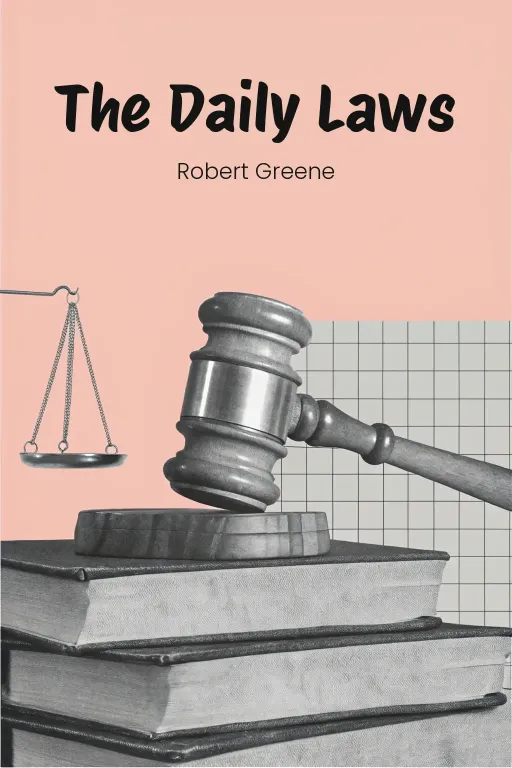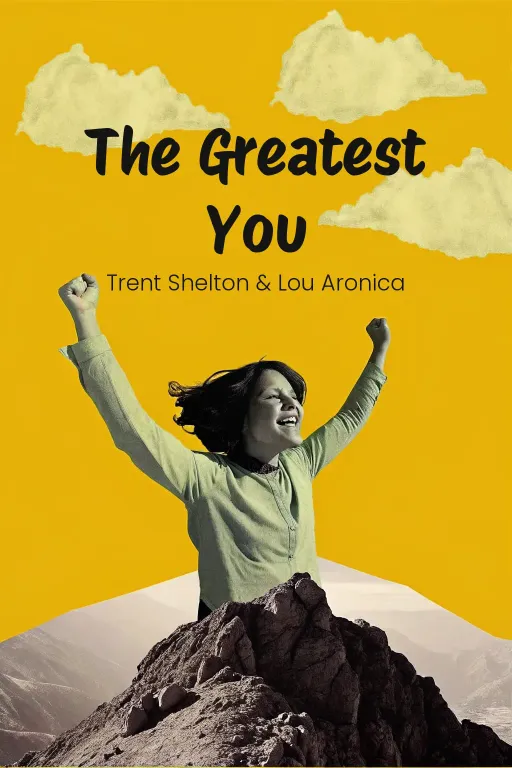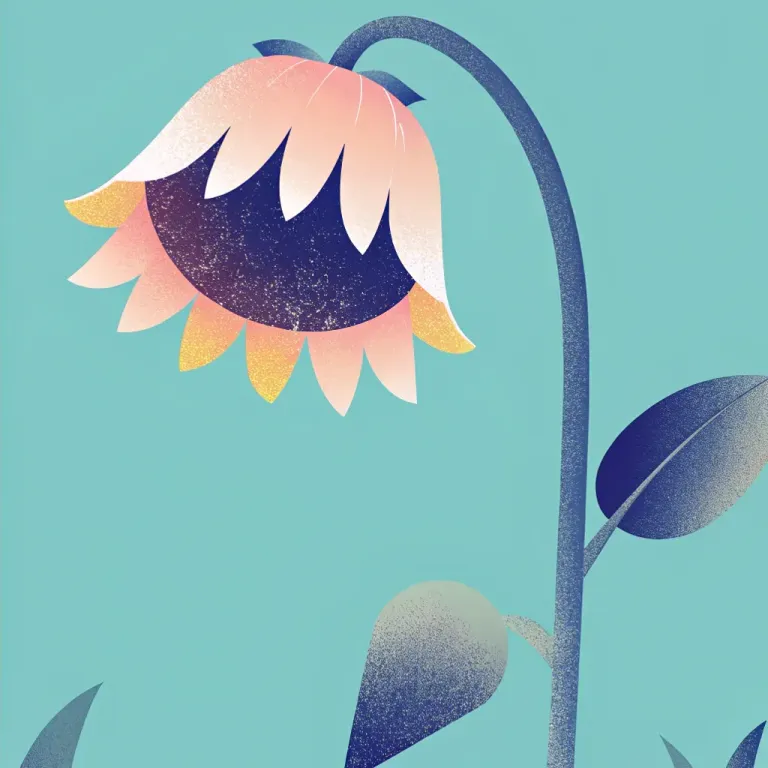
Cynics' Guide: Build Real Hope Now!
Podcast by The Mindful Minute with Autumn and Rachel
The Surprising Science of Human Goodness
Cynics' Guide: Build Real Hope Now!
Part 1
Autumn: Hey everyone, welcome to the show! Let's kick things off with a question: Have you ever caught yourself thinking that people are inherently selfish? Or maybe felt like trust is a rare commodity these days? If that resonates, you're definitely in the right place. Rachel: Or, you know, if you're anything like me, you might think a little cynicism is just being realistic! I mean, just look at the news—it's not exactly a feel-good parade. But Autumn, I hear that Jamil Zaki thinks there's a way out, even for us skeptics. Autumn: Precisely, Rachel. Zaki's book, “Hope for Cynics”, really gets to the heart of this. He points out that cynicism isn't just a personal outlook; it's a force that can increase isolation, erode trust, and ultimately weaken communities. But here's the interesting part: he believes we can actually move beyond cynicism. Rachel: That's a pretty optimistic take. So, what's his reasoning? Autumn: Zaki uses a mix of scientific research, personal stories, and historical context to demonstrate that building trust and fostering hope, while challenging, is crucial for tackling the divisions we see everywhere—in our relationships, in politics, and across society. Essentially, he's saying that hope isn't just wishful thinking; it's a deliberate strategy. Rachel: A strategy, huh? I like that. So, what's on the agenda for today? Autumn: We're going to explore three main areas. First, we'll delve into the origins of cynicism—why we're inclined to distrust and how it affects our lives. Second, we'll examine the science of hope—how it can actually be measured and developed, not just a vague concept. And finally, we'll look at practical approaches and systems that could help rebuild trust, both personally and on a broader scale. Rachel: Origins, science, systems. Got it. Sounds like we're starting with the problem and then working our way towards solutions. Autumn: Exactly! And hopefully, by the end of our discussion, we'll understand why Zaki argues that "hopeful skepticism" might be the most valuable tool we have for creating a better future. Rachel: Alright, I'm intrigued. Let's dive in.
The Nature and Impact of Cynicism
Part 2
Autumn: Okay, so let’s jump right back into the nature and impact of cynicism. It's more than just a bad mood; it's a “really” ingrained pattern that can shape individual lives and, honestly, entire societies, you know? And what's “really” interesting is seeing how cynicism has changed from its ancient roots to what it is today. Rachel: Exactly, and that contrast is truly fascinating. I mean, those ancient Cynics, people like Diogenes, they were almost the original idealists, right? Sure, he was famous for making fun of social norms, but it wasn't just random nihilism, he was trying to strip away the superficial stuff to get to the real heart of human virtue. Autumn: Exactly. He used cynicism almost as a radical form of honesty, aimed at achieving authenticity. Can you imagine him holding that lantern and searching for an honest man in broad daylight? Of course, he was probably a bit abrasive, but it wasn’t about tearing people down. It was to remind people of their potential for good. Rachel: Right, and how does that compare with the cynicism we see today? It feels… less philosophical, more practical, almost in an acidic sort of way. Instead of searching for truth with a lantern, it’s more like, "No thanks, I'm good, keep human nature to yourself." It's about self-preservation, having walls up because trust means vulnerability. Autumn: Exactly, and that’s the shift we’re dealing with. Modern cynicism has pretty much abandoned the pursuit of virtue, instead, it creates a defensive posture of disengagement. Modern cynicism thinks that everyone’s out for themselves, so why bother connecting with them or believing in altruism? And here’s the kicker: even though it feels like it’s protecting us, protecting us from being exploited, it's actually corrosive. Rachel: How so? Isn’t a little distrust a practical tool to have, you know? Autumn: Sure, maybe at first. But sustained cynicism becomes a self-fulfilling prophecy. There’s this fantastic concept that Zaki talks about, a psychological feedback loop. You see, studies have shown that people who carry distrustful attitudes are more likely to misinterpret even neutral, kind actions as hostile. The misinterpretations reinforce the idea that people are untrustworthy, which then, of course, isolates the individual. Rachel: Wow, that’s… a bit bleak, isn’t it? So, if I’m hearing you right, cynicism is basically gaslighting itself? If you believe people can't be trusted, you'll see things that confirm that belief, even if they aren't true, and it just spirals until trust becomes a dirty word. Autumn: Exactly. And what begins at the individual level escalates when it's applied to larger communities or systems. Take bureaucracies, for example. When institutions are inefficient or lack transparency, cynicism just flourishes. People start viewing the systems as fundamentally broken, and their belief in leadership and society’s fairness just crumbles. Rachel: Oh, wow. Actually, the story in the text about Lorraine “really” hits this point home, doesn’t it? It’s like this perfect example of systemic cynicism. Autumn: Absolutely. Lorraine’s experience perfectly illustrates this. Every time she tried to navigate the welfare system, she just ran into a wall of indifference and rigidity. It's hard to feel like a valued person when the system is treating you like a number. Rachel: "I’ve learned to expect nothing." That line of hers. It “really” hit me. Because “really”, what is cynicism anyway, if it's not the absence of hope? Lorraine built walls to protect herself from further disappointment, but in doing so, she ended up disconnected and drained. Autumn: Exactly, and that's the real tragedy of it all. Zaki doesn't condemn Lorraine for feeling that way, it's a natural response to relentless disappointment. But her story highlights how systemic failures can actually push people towards cynicism, which then in turn reinforces the problems that these systems are supposed to solve. You know, it's this terrible cycle that erodes our relationships, our mental health, and our trust. Rachel: Okay, so I get the problem: cynicism isolates you, messes with your head, and bogs down society. But is there any hope for pulling people out of it? Or are we all doomed like Lorraine, stuck in this loop? Autumn: Well, Zaki doesn’t leave us there, thankfully. Actually, there's a “really” great counterexample that shows how trust, even when it feels risky, can actually begin to reverse cynicism’s grip. Take that community garden initiative, for example. Rachel: Ah, the scrappy little garden. Sounds like a classic "let's all hold hands and fix the world" kind of setup. Autumn: I knew you’d say that! But hear me out, the garden was more than just a nice idea. In the beginning, most of the participants were extremely skeptical, you know, worried that the project would just fall apart or that others would exploit it. But once they started working together – clearing debris, planting seeds, and learning to share responsibilities – that mistrust began to dissolve. Rachel: So, it's almost like trust is a muscle, right? You flex it a little bit, pull up a weed here, plant a tomato there, and eventually it gets stronger, doesn't it? Autumn: That's a perfect way to put it. By the time the garden “really” started thriving, so was the neighborhood. People who had once eyed each other with suspicion were now collaborating, even supporting one another outside the garden. It's “really” a testament to how these small, intentional acts can rebuild trust. Rachel: So, we've got Lorraine showing us the problem, and we've got the community garden offering a glimpse of a solution. One's this cautionary tale, the other a beacon of hope. The big takeaway being, cynicism might feel safer, but trust is “really” what gets things done. Autumn: Precisely. And as Zaki says, diagnosing cynicism is about more than just labeling it as harmful; it’s about understanding its roots, where it actually comes from, and recognizing that trust and connection, however daunting they might seem, are “really” the only meaningful antidotes.
Hope as an Active Practice
Part 3
Autumn: So, understanding cynicism’s roots and effects really sets us up to explore its antidote: hope. This is where we shift from just diagnosing the problem to actively finding solutions. And, you know, hope—at least the way Zaki presents it—isn't passive. It's not just sitting around waiting for good things happen. It’s a practice, an action. Rachel: A practice, huh? Okay, so what does that actually look like in real life? Because “hope as an active practice” sounds good on paper, but… I gotta say, it's a bit abstract. Are we talking some kind of spiritual retreat, or are there things regular people can actually do on a daily basis? Autumn: Definitely the latter. Zaki argues that hope isn’t about seeing the world through rose-colored glasses or ignoring the tough stuff. It’s about reframing how we respond to those realities. Take Emile Bruneau, for example—it's one of the most powerful stories Zaki shares. Bruneau, a social psychologist and conflict researcher, faced a lot of adversity in his life. He lost his mother to mental illness, had a difficult childhood, and then… he was diagnosed with terminal brain cancer. Rachel: Yeah, I remember reading about him—I mean, talk about someone who could have justifiably given up. And yet, he was out there, working to promote empathy and understanding. Makes the rest of us look a bit… well, less resilient, let’s say. Autumn: Absolutely. What’s so remarkable about Bruneau is how he transformed hardship into action. He didn’t downplay his struggles or ignore life's difficulties. Instead, he embraced what he called “the fleeting beauty of life.” He said, "We all die, but most of us don’t know how much time we have.” That reframing—shifting from despair to gratitude—even facing his own mortality, became his way of finding hope. Rachel: That’s a powerful line, Autumn. It takes serious guts to look at your worst-case scenario—literally your own death—and choose to see meaning in it. But how does this idea of hope extend beyond just the individual? Okay, Bruneau was an exceptional person, but not everyone has that kind of… grit. Autumn: Fair point. Bruneau’s story is personal, but the way he applied hope is scalable. His work was all about fostering empathy and bridging divides between different groups. For example, he conducted studies promoting cross-cultural understanding, showing how hope can create real connections. It wasn't just about his own inner peace; it was about using hope as a catalyst for collective progress. Rachel: So, hope becomes less about sitting around meditating, and more about… I don’t know, planting seeds? Building bridges? Fixing whatever's within reach? Autumn: Exactly! And Zaki goes even further by offering practical tools to cultivate this actionable hope. One of these practices is called “encounter counting.” Rachel: Encounter counting? Sounds like something you’d do on a nature hike—spotting birds or squirrels. Autumn: Kind of, but instead of wildlife, you’re counting moments of human connection. It's quite simple: consciously notice everyday instances of kindness or goodwill. Someone holding the door open for you, a stranger giving directions, even a barista smiling as they hand you your coffee. Seemingly small, insignificant interactions that remind you that not everyone's out to get you. Rachel: So, if I'm following you correctly, it’s like retraining your brain to see the glass half-full, or at least… not completely empty. Autumn: Precisely! There’s a psychological concept—the positivity offset. By actively looking for and acknowledging positive interactions, you balance out the brain’s natural negativity bias – the tendency to focus more on threats or bad experiences than on the good stuff. Over time, this practice builds a buffer against cynicism. Rachel: Okay, I’ll bite. Encounter counting sounds easy enough. But what about those trickier situations, where hope feels like a real stretch? Just squint harder until you see a silver lining? Autumn: Not exactly. Here’s where another method comes in: reframing challenges. Stepping back from knee-jerk reactions, trying to understand the bigger picture. For instance, someone cuts you off in traffic. A cynical view might be, "Of course—they’re selfish, like everyone else". Reframing asks: "What if they’re rushing to a hospital or having a really bad day?" Replace judgment with curiosity. Rachel: Now that’s not easy. Cynicism is faster, and frankly, can feel good in the moment—like being superior because you "get" how awful people are. Reframing requires extra mental effort. Autumn: True, and we’re all guilty of jumping to conclusions. But reframing isn’t excusing bad behavior—it’s about not letting our assumptions trap us in a cynical worldview. Journaling is key here, too. Reflecting on frustrating moments and asking, “What else could explain this?” It can help recalibrate your perspective. It’s both a personal tool and a way to understand broader trends. Rachel: Alright, so we've got encounter counting, reframing, and journaling. But what about actual measurable results? Does hope really improve mental health or societal outcomes? Autumn: Absolutely, and it's a striking part of Zaki’s argument. Research shows that people who actively practice optimism report higher life satisfaction and lower rates of anxiety and depression. Okay, that's at the individual level. But there’s also evidence that hope amplifies resilience in collective crises. Communities that prioritize trust and collaboration recover faster from natural disasters or economic downturns. Rachel: And I bet there’s a "contagious hope" aspect, right? When you see other people being hopeful, it’s easier to get on board and, you know, follow the crowd in a good way. Autumn: Exactly. It reinforces that hope doesn’t operate in isolation. It’s like lighting a match; the flame spreads. And to take this further, let’s explore real-life examples of collective hope in action. A great example from the book is the story of teenagers leading a waste-reduction campaign at their school. Rachel: Oh, those scrappy teens again. Let me guess—they turned recycling into a TikTok trend and saved the planet. Autumn: Not quite, but their determination is still impressive! These students noticed pollution in their local area and decided to act! They created a recycling program, hosted workshops, and even designed competitions to engage their peers. Initially, plenty of adults—and some classmates—were cynical. "What difference does it make?" "No one will keep it up." They were common refrains. Rachel: Classic naysaying. People do love to tear down new ideas before they even get off the ground. Autumn: They really do. But through persistence, and creative problem-solving, the students not only reduced waste but also changed the culture at their school. Skeptics became participants. Teachers got involved. The whole thing snowballed into connecting the community in ways no one had anticipated. Rachel: Fine, I’ll admit—that’s a hopeful kind of ripple effect. Starting small, thinking big.
Reinventing Social Systems Through Trust
Part 4
Autumn: So, having established hope as this “really” transformative force, we need to figure out how to actually rebuild trust in systems that feel, well, pretty broken. Zaki “really” takes it to the next level here by not only focusing on individual actions, but systemic solutions. How we can “really” bake trust into our institutions for the long haul. Rachel: Okay, let's dive into the deep end then – systems, structures, the whole shebang. Can trust really hold up under the weight of bureaucracy, politics, and, you know, the good old human capacity for making a mess of things? Autumn: It’s a big ask, no question. But Zaki presents some fascinating ideas about how we can basically reinvent our social systems around trust and equity. He starts with this fundamental point: trust isn't just a "nice-to-have". It is the very backbone of any society that actually functions well. Rachel: Alright, but how does that look in practice? I mean, systems are so... impersonal. How do you even begin to inject trust into something like a government program or a huge institution? Autumn: That is precisely the Million Dollar Question, Rachel. Zaki argues that a lot of traditional systems just fail to foster trust because they're fundamentally designed around a core of skepticism. Think about welfare programs. The focus is so often on preventing fraud, which means people who need help get buried under mountains of paperwork and scrutiny. It actually breeds cynicism. Rachel: Right, because nothing says "we believe in you" like requiring 47 documents to prove that you’re not ripping off the system! Autumn: Exactly! And that's where the whole idea of direct cash transfers comes in. Are you familiar with these programs? Rachel: Unconditional financial support, right? Honestly, my first reaction is that it sounds like it’s just asking for abuse. Autumn: I know, that’s the assumption a lot of people make. But the pilot programs we're seeing around the world actually tell a very different story. The idea is super simple. Give people who need it money, no strings attached, and trust them to use it wisely. Guess what? It turns out it actually works. Most folks invest in the essentials like healthcare, education, or starting small businesses. Far from creating dependency, it's actually empowering. Rachel: Okay, so the data says it works. But why do you think it’s having that big of an impact? Autumn: That's the key! Direct cash transfers sidestep these paternalistic systems that basically scream, “We don't trust you”. Instead, they send a really clear message: "We believe in your ability to make good decisions for yourself and your family." That trust fosters dignity, ambition, and self-sufficiency. Rachel: And it's tackling cynicism at the root, too, I'm guessing. Autumn: Precisely! You're interrupting that psychological feedback loop we talked about earlier and shifting perceptions from “I’m abandoned” to “Someone believes in me." Rachel: Alright, so money, trust, dignity – it's like the trifecta. What else have you got? Autumn: Community-centric schools are a really great example. These aren't your traditional schools focused solely on cranking up those test scores. Instead, they involve parents, teachers, students, and the wider community in shaping the whole education process. Rachel: Sounds nice, but, I gotta say, it also sounds a bit chaotic. Do these schools actually... work? Autumn: Well, take Lincoln Middle School. They went through a huge transformation. The school had “really” been struggling – poor academic performance, dropout rates were high, and there was a pretty fractured relationship between students, teachers, and parents. They then introduced a program centered around restorative practices, which “really” fostered open dialogue among everyone involved. Rachel: Restorative practices. So, is that kind of like group therapy for schools? Autumn: In a way, yes. They implemented these community circles where everyone – students, faculty, even families – could voice their concerns, share ideas, and work through conflicts together. Over time, these connections rebuilt trust. And the results “really” speak for themselves: better academic outcomes, fewer disciplinary issues, and a much stronger sense of community. Rachel: It’s interesting, shifting from a "top-down" educational structure to something more inclusive reminds me of, I don’t know, a playground for trust. Everyone has a stake, so everyone feels invested. Autumn: Exactly. That’s what makes it work. When trust is at the core, it doesn’t just change outcomes, it changes relationships. Education becomes not just about grades, but about community resilience. Rachel: Okay, so we’ve got schools and cash transfers reimagined with trust at the center. But what happens when systems completely fail – I mean, when institutions just don’t step up to the challenge? Autumn: Then you start looking at mutual aid networks. These grassroots orgs – they thrive on community members pooling resources and helping each other directly. They're less hierarchical, more about that reciprocal trust. Rachel: Let me guess – they’re the unsung heroes of… what, natural disaster recoveries? Autumn: Exactly. Flashback to Hurricane Katrina, right? While federal aid was trickling in, mutual aid groups filled in the immediate gaps – food, shelter, emotional support. Then fast forward to the COVID-19 pandemic, we saw countless examples of neighbors organizing grocery deliveries, raising funds, offering childcare for essential workers. Rachel: That’s the kind of thing you probably can’t “systemize,” though. Isn’t mutual aid really more about, like, spontaneous solidarity than long-term infrastructure? Autumn: It starts that way, absolutely. But a lot of mutual aid networks evolve into sustainable systems. Take the Hurricane case study Zaki highlights. What began as neighbors sharing resources grew into a formalized organization with training programs and resource-sharing agreements. Over time, that transformed the community’s identity, fostering a culture of trust and cooperation. Rachel: Alright, I'm starting to see the bigger picture. These trust-centric systems aren’t just Band-Aids – they actually reshape how people relate to one another and to their environments. Autumn: Exactly! Whether it’s unconditional cash transfers, empowering schools, or mutual aid, these models prove that trust isn’t just an abstract virtue. It’s a strategy. One that’s measurable and transformative. Rachel: So, you're saying that trust, this thing I've been side-eyeing my whole life, might actually be the safest bet for systemic change? Autumn: That’s the irony. It feels risky, but it’s what makes our systems resilient, inclusive, and, most importantly, human.
Conclusion
Part 5
Autumn: Okay, so let's wrap things up . Today we really dug into cynicism, how it kind of builds walls around us, isolates us, and eats away at trust . But we also looked at the flip side: hope . And I don't mean some naive, fluffy optimism, but a real, active choice . From the little things, like keeping track of positive interactions and how we reframe our thinking, to bigger movements—direct cash transfers, community schools, and mutual aid—the message is pretty clear: when you nurture trust, you can really transform people and systems . Rachel: Yeah, I gotta admit, the results speak for themselves . Cynicism might feel safe, but it’s also a bit of a trap, right ? A loop that just keeps you stuck in the same place . Zaki’s work reminded me that trust, even though it feels like a bit of a, you know, “leap of faith,” can actually build bridges to connect each other, bridges we didn't even know we needed . Autumn: Absolutely . And here’s something for everyone to chew on: What if trust, no matter how scary it feels, isn’t just what comes after change, but how we actually start that change ? What if, in our own lives and in our communities, we tackled challenges with a little more trust and a little less cynicism ? Rachel: Sounds like a pretty risky experiment, Autumn . But, you know, maybe it's the only way to actually break out of this cycle we’re talking about . Autumn: Exactly ! Couldn’t have put it better myself, Rachel . So, until next time, let’s all aim for hope—not as some passive wish, but as a real call to action .


